Asia
2012
What’s behind India’s Internet censorship?
We have been posting a lot about the challenges facing the Internet in India recently–see Mannika Chopra’s “India struggles to cope with growing Internet penetration.” On Tuesday, Angela Saini, a guest blogger on The Guardian’s Comment Is Free site, posted “Internet censorship could damage India’s democracy,” with the subhead “Google and Facebook have been asked…
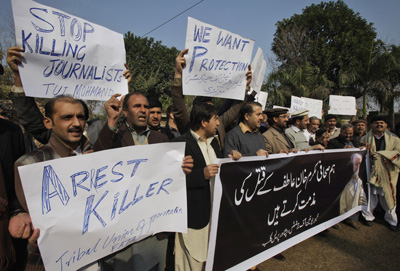
Pakistan’s Abbas: Journalists hostage to ‘power of gun’
CPJ award winner Mazhar Abbas penned a strong Sunday op-ed piece, “Death is the only news–Challenges of working in conflict zones,” for The News. It’s about conditions for journalists working in Pakistan’s Federally Administered Tribal Areas (FATA) and Baluchistan. As Abbas says, “The killing of one journalist is a message for another.” He goes on…
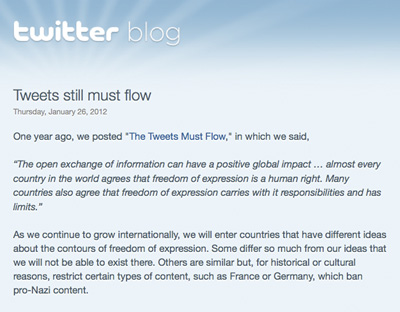
Can selective blocking pre-empt wider censorship?
Last week, Twitter provoked a fierce debate online when it announced a new capability–and related policy–to hide tweets on a country-specific basis. By building this feature into its website’s basic code, Twitter said it hoped to offer a more tailored response to legal demands to remove tweets globally. The company will inform users if any…
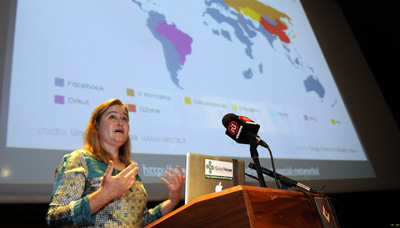
Does the Internet boost freedom? We decide, book says
The Internet doesn’t bring freedom. Not automatically, anyway. That’s one of the main messages of Rebecca MacKinnon’s new book, Consent of the Networked, which had its New York launch at the offices of the New America Foundation last night. In a conversation with CNN managing editor Mark Whitaker, MacKinnon, a CPJ board member, said it’s…
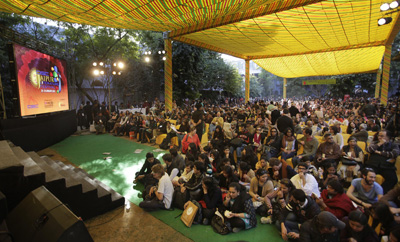
India’s challenge: Intolerance vs. intellectual freedom
Because of criticism from Hindu fundamentalists, the showing of a documentary by filmmaker Sanjay Kak at the Symbiosis College of Arts and Commerce in Pune has been indefinitely postponed. The conservative student organization Akhil Bharatiya Vidyarthi Parisha protested Kak’s film, “Jashn-e-Azadi” (How we celebrate freedom), which is critical of the Indian army’s role in Kashmir.…

Chinese press has impact, against the odds
In China, state control over the media hasn’t become more lax in recent years. Each year brings a new excuse for Communist Party censors to tighten the screws. The year of the rabbit brought the Arab Spring, and fears of a Jasmine Revolution. The year of the dragon brings a major political transition.
Can an Indian cartoonist be barred from mocking the state?
The case of a cartoonist charged with treason and offending India’s national sentiments reflects a growing debate over what constitutes freedom of expression in India. His accusers argue that while it is permissible to make fun of politicians, you cannot make fun of the state. Not everyone agrees.
For journalists, cyber-security training slow to take hold
For centuries, journalists have been willing to go to prison to protect their sources. Back in 1848, New York Herald correspondent John Nugent spent a month in jail for refusing to tell a U.S. Senate committee his source for a leak exposing the secret approval of a treaty with Mexico. In a digital age, however,…
Google+, real names and real problems
At the launch of Google+, Google’s attempt to create an integrated social network similar to Facebook, I wrote about the potential benefits and risks of the new service to journalists who use social media in dangerous circumstances. Despite early promises of relatively flexible terms of service at Google+, the early days of implementation were full…
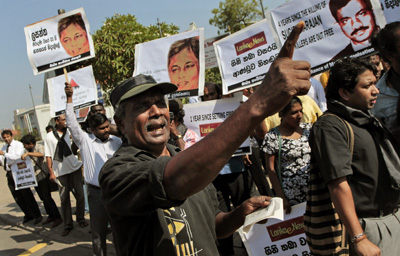
Black January? A foreign plot, says Sri Lankan government
On Monday, I wrote about two demonstrations scheduled for Sri Lanka this week. Both were meant to commemorate the ugly string of anti-press attacks in recent Januaries, which has included journalists killed and abducted, television stations bombed, websites attacked, and media offices torched. But Wednesday’s Black January effort, publicized by the Free Media Movement (FMM)…